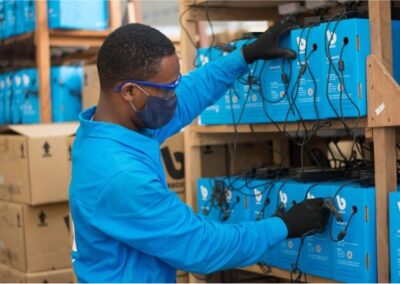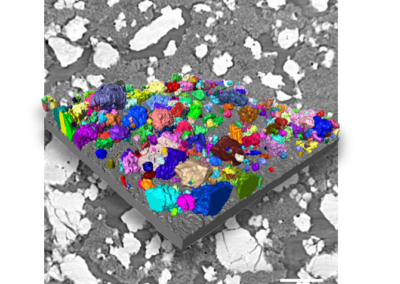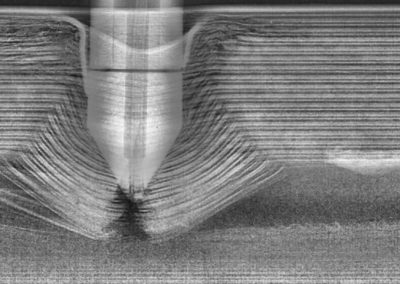Energy storage is critical in a zero-carbon world; across a range of applications and timescales, electrical and thermal storage will play a central role.
The materials for the Li-ion battery were discovered in Oxford in the 1970s and we continue to lead internationally recognised research in the field, developing batteries with diverse requirements for a range of applications. In the transport sector, electric passenger vehicles have gained a significant market; our work continues to develop safe, low-cost and high-performance batteries for a range of demanding applications. In the power sector, large-scale electricity storage is required to provide supply and demand balancing, our research has highlighted the need for large scale storage to provide resilience in an increasingly diverse energy system and has developed techno-economic frameworks for the optimisation of storage assets.
Thermal energy storage is also essential alongside electric storage to meet the growing demand for reliable, efficient, and sustainable energy systems. Our work involves high-temperature thermal storage for concentrated solar power plants and industrial processes, to store heat for electricity generation and waste heat recovery. Moreover, novel low-temperature heat batteries are being developed for HVAC systems and refrigeration to capture and store heat or cold, offering a complementary solution that balances energy supply and demand. Together, thermal and electric storage ensure a more resilient and flexible energy system, reducing reliance on fossil fuels and enhancing energy security.
Our multidisciplinary approach integrates research from fundamental materials discovery through to applications and demonstration, drawing in research across multiple departments and divisions. As the drive for electrification accelerates, ensuring that we have the right storage technologies and associated policies and markets to support their deployment, is essential for a just energy transition.
Our Storage Case Studies

Boosting battery reliability for off-grid energy access
The Faraday Institution ‘MaxBatt’ project developed rapid diagnostics, ageing models, and screening methods for lithium-iron-phosphate ... Read more

SAGEflex: Safeguarded AI Agents for Grid-Edge Flexibility
SAGEflex aims to develop a software platform for training, testing, benchmarking, and scaling up AI-based solutions to unlock power ... Read more

Project LEO (Local Energy Oxfordshire)
Project LEO demonstrated how local energy systems can accelerate the transition to a zero-carbon energy future through innovative ... Read more

Next Generation Battery Energy Storage
Energy storage is critical to decarbonization in a range of sectors. As we approach the limits of Li-ion technology, developing next ... Read more

The Science of Battery Safety
Battery energy storage is a cornerstone of de-carbonistation plans. Our research on the Science of Battery Safety is ensuring that ... Read more
Our Research Areas
Generation
Conversion
Distribution
Storage
Usage
More from ZERO Institute

About the ZERO Institute
We want to shape the transition to a just and fair global zero-carbon energy system, through research that unifies technology, policy, and people.

Our People
The ZERO Institute is a multi-disciplinary hub for zero-carbon energy research, bringing together academics from across the University of Oxford.

Latest News
Catch up on the latest news and events to see how ZERO is driving the transition to a zero-carbon energy system.